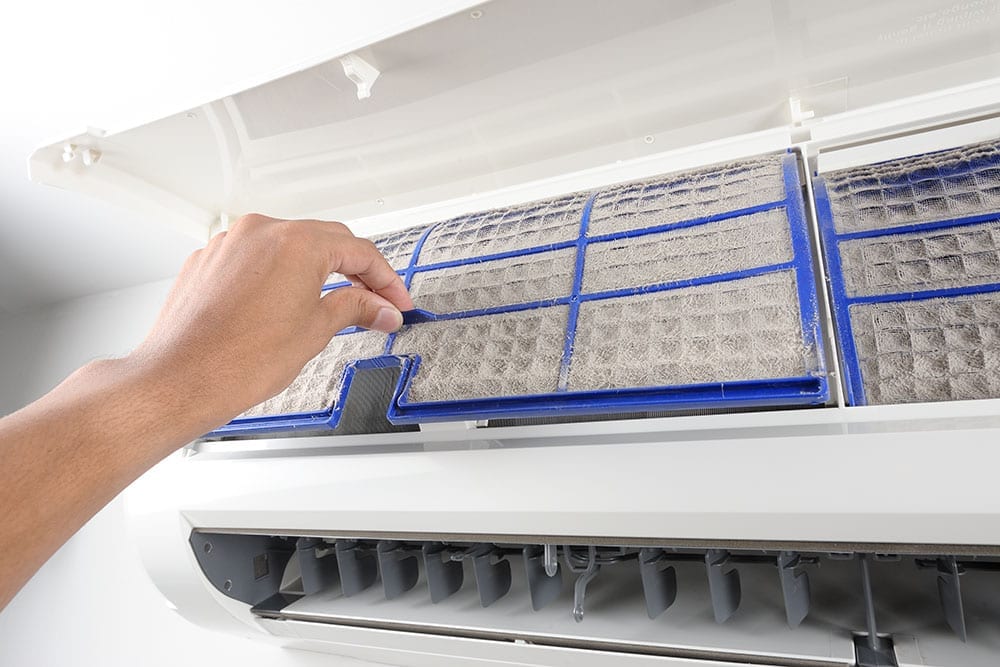Blog
Spring is the Time to Have Your Air Conditioning System Checked

Staying comfortable during the summer depends largely on the condition of your home’s air conditioning system, and maintenance is key to its dependable and efficient performance. Without professional attention, this hard-working appliance is more likely to break down or waste energy. And spring is the best time to have it inspected and maintained, after the rigors of winter and before you need it in the summer.
Schedule an appointment now for your 20-point precision tune-up.
Why Maintenance Is So Important
Like all mechanical systems, central cooling systems need to be periodically cleaned and adjusted to perform at the level the manufacturer intended. The outdoor condenser is exposed to extremes of weather year-round, while the air handler, located indoors, pushes the entire home’s air through four to six times every day. Those are big challenges for any engineered system to meet. The system’s manufacturer may also require proof of maintenance before honoring a warranty claim.
What’s Involved
When an HVAC (heating, ventilating, air conditioning) technician performs an annual inspection on a central air conditioning system, s/he examines each component, looking for problems that could turn into bigger issues if left unattended. For example, dirty coils in the condenser and air handler can lead to compressor failure, one of the most expensive parts to replace.
At Home Comfort Experts, a precision tune up takes at least two hours and includes these 20-points of inspection and adjustment:
- Calibrate & level thermostat
- Clean filters
- Monitor volts/amps on fan motor
- Lubricate & inspect bearing for wear
- Clean indoor coil if accessible
- Flush condensate drain
- Inspect condenser coil
- Monitor operating pressures of refrigerant
- Inspect safety devices for proper operation
- Inspect disconnect box for proper rating and installation
- Tighten electrical connections
- Test/inspect contactors for burned, pitted contacts
- Inspect electrical for exposed wiring
- Test and inspect capacitors
- Inspect fan blade
- Clean condenser coil/remove debris
- Check in service valves for proper operation
- Measure temperature difference – supply/return
- Inspect duct work for energy loss
- Monitor compressor for proper amperage, volt draw and wiring connections
The fins on the outdoor condenser need to be cleaned regularly, typically with a chemical spray, to remove residual dust, grass clippings and other debris. These fins bend easily and the technician will use a special tool to straighten them to improve system efficiency.
Related read: Your Outdoor Air Conditioning Unit Needs Your Help
The technician can also show you how to change the air filter and explain when you should do it, and best filter to use for your system. Running your equipment with a dirty filter drives up energy costs, allows components inside the air handler to get dirty, and may contribute to early part failure.
Running an A/C with an improper refrigerant level can lay the groundwork for a frozen evaporator coil, water damage and compressor failure. Sometimes an A/C installer miscalculates the amount of refrigerant to install, resulting in higher energy use and unnecessary wear on the system. Should this occur, the problem will probably be discovered during the next inspection or maintenance session, before serious damage occurs.
Over time, electrical components get dirty and can corrode, lowering the system’s energy efficiency. When electricity encounters more resistance than a system is designed for, overheating can occur, which might represent a fire hazard.
If a system’s drain pipe is clogged or installed at the wrong angle, water can build up in the air handler and the drain pan and overflow into the home. That’s why A/C maintenance always includes cleaning the drain pan and drain pipe. The technician will use safe chemicals to remove mold.
Inside your home, the technician will test air flow through the air handler and look for signs of damage to ductwork. Inform the technician about any places in your home that are overly warm or have excessive dust deposits around the registers: these could indicate a ductwork leak. According to the U.S. Department of Energy, leaking ducts waste a lot of energy and reduces indoor air quality.
For top-quality A/C service throughout Michiana, contact Home Comfort Experts.
RELATED READ: What to Expect When A Home Comfort Experts Technician Visits Your Home
Oops! We could not locate your form.



